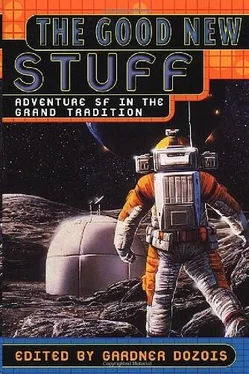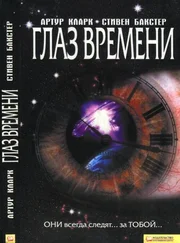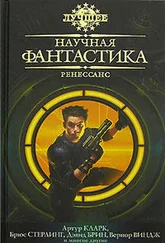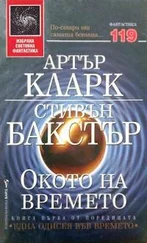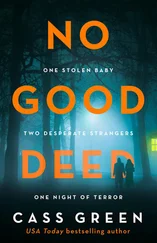Стивен Бакстер - The Good New Stuff
Здесь есть возможность читать онлайн «Стивен Бакстер - The Good New Stuff» весь текст электронной книги совершенно бесплатно (целиком полную версию без сокращений). В некоторых случаях можно слушать аудио, скачать через торрент в формате fb2 и присутствует краткое содержание. Год выпуска: 2002, ISBN: 2002, Издательство: St. Martin's Griffin, Жанр: Фантастика и фэнтези, на английском языке. Описание произведения, (предисловие) а так же отзывы посетителей доступны на портале библиотеки ЛибКат.
- Название:The Good New Stuff
- Автор:
- Издательство:St. Martin's Griffin
- Жанр:
- Год:2002
- ISBN:0-312-26456-9
- Рейтинг книги:3 / 5. Голосов: 1
-
Избранное:Добавить в избранное
- Отзывы:
-
Ваша оценка:
- 60
- 1
- 2
- 3
- 4
- 5
The Good New Stuff: краткое содержание, описание и аннотация
Предлагаем к чтению аннотацию, описание, краткое содержание или предисловие (зависит от того, что написал сам автор книги «The Good New Stuff»). Если вы не нашли необходимую информацию о книге — напишите в комментариях, мы постараемся отыскать её.
The Good New Stuff — читать онлайн бесплатно полную книгу (весь текст) целиком
Ниже представлен текст книги, разбитый по страницам. Система сохранения места последней прочитанной страницы, позволяет с удобством читать онлайн бесплатно книгу «The Good New Stuff», без необходимости каждый раз заново искать на чём Вы остановились. Поставьте закладку, и сможете в любой момент перейти на страницу, на которой закончили чтение.
Интервал:
Закладка:
This perceptual shift was common to all his early stories, which share a common setting in which humankind has been forcibly exiled from the Earth and forced to live instead on the other planets of the solar system— but where the children of those outcasts have adapted so well that they've made a virtue of necessity, and actually enjoy living in hostile environments such as Venus or Mercury or the Moon, something that's made clear and explicit in stories such as "Retrograde Summer," among others. They've become new people, different in values from their parents, just as Varley himself was different in values even from his biggest role model (although there are echoes in his work of Zelazny, James Tiptree, Jr., Samuel R. Delany, and Larry Niven as well), Robert A. Heinlein. I always felt that Varley had made this explicit in his very first story, "Picnic on Nearside," when the young Varley Individuals (children by today's standards, although fully mature and sexually active) find what I take to be the last Heinlein Individual living as a hermit on the other side of the Moon, a crusty, competent, self-sufficient, ferociously independent, politically and sexually conservative, somewhat paranoid individual whom the children regard with affection and a certain degree of respect, but who also seems to them outmoded and out of touch and faintly pathetic, and whose problems and ultimate demise are caused by his own stubbornness and inability to compromise, and by the obsolete social attitudes that he is unable to change or even suspect that he should change. This always struck me as a highly significant moment in genre history. The Varley Individuals had won, not by fighting, not by Campbell-esque political Dirty Tricks, but simply because they were new people, with new attitudes that made the old ones obsolete. From now on the future would belong to them and their children, not to the Heinlein Individual, who had owned it for more than thirty years.
Varley often uses children as protagonists of his Eight Worlds stories, in fact. As in the one that follows, one of the best but also one of the lesser-known of those stories, in which he demonstrates that when you become a man, it's time to put away childish things— but that sometimes doing that can be very hard indeed.
Varley somehow never had as great an impact with his novels as he did with his short fiction, with the possible exception of his first novel, Ophiuchi Hotline. His other novels include the somewhat disappointing "Gaean" trilogy, consisting of Titan, Wizard, and Demon, and a novelization of one of his own short stories that was also made into a movie, Millennium; he has also published four collections, The Persistence of Vision, The Barbie Murders, Picnic on Nearside, and Blue Champagne.
In the eighties, Varley moved away from the print world to produce a number of screenplays for Hollywood producers, most of which were never produced. He produced one last significant story, 1984's "Press Enter," which won him both the Hugo and the Nebula Award (he also won a Hugo in 1982 for his story "The Pusher," and a Hugo and a Nebula in 1979 for his novella "The Persistence of Vision.") After "Press Enter," little was heard from Varley in the genre until the publication of a major new novel, Steel Beach, in 1992, which was successful commercially, but received a lukewarm reception from many critics. Since then he has been largely silent, but that may be about to change; a new novel, The Golden Globe , has just been published, and another book, Irontown Blues , has already been announced.
It was summer, and Piri was in his second childhood. First, second; who counted? His body was young. He had not felt more alive since his original childhood back in the spring, when the sun drew closer and the air began to melt.
He was spending his time at Rarotonga Reef, in the Pacifica disneyland. Pacifica was still under construction, but Rarotonga had been used by the ecologists as a testing ground for the more ambitious barrier-type reef they were building in the south, just off the "Australian" coast. As a result, it was more firmly established than the other biomes. It was open to visitors, but so far only Piri was there. The "sky" disconcerted everyone else.
Piri didn't mind it. He was equipped with a brand-new toy: a fully operational imagination, a selective sense of wonder that allowed him to blank out those parts of his surroundings that failed to fit with his current fantasy.
He awoke with the tropical sun blinking in his face through the palm fronds. He had built a rude shelter from flotsam and detritus on the beach. It was not to protect him from the elements. The disneyland management had the weather well in hand; he might as well have slept in the open. But castaways always build some sort of shelter.
He bounced up with the quick alertness that comes from being young and living close to the center of things, brushed sand from his naked body, and ran for the line of breakers at the bottom of the narrow strip of beach.
His gait was awkward. His feet were twice as long as they should have been, with flexible toes that were webbed into flippers. Dry sand showered around his legs as he ran. He was brown as coffee and cream, and hairless.
Piri dived flat to the water, sliced neatly under a wave, and paddled out to waist-height. He paused there. He held his nose and worked his arms up and down, blowing air through his mouth and swallowing at the same time. What looked like long, hairline scars between his lower ribs came open. Red-orange fringes became visible inside them, and gradually lowered. He was no longer an air-breather.
He dived again, mouth open, and this time he did not come up. His esophagus and trachea closed and a new valve came into operation. It would pass water in only one direction, so his diaphragm now functioned as a pump pulling water through his mouth and forcing it out through the gill-slits. The water flowing through this lower chest area caused his gills to engorge with blood, turning them purplish-red and forcing his lungs to collapse upward into his chest cavity. Bubbles of air trickled out his sides, then stopped. His transition was complete.
The water seemed to grow warmer around him. It had been pleasantly cool; now it seemed no temperature at all. It was the result of his body temperature lowering in response to hormones released by an artificial gland in his cranium. He could not afford to burn energy at the rate he had done in the air; the water was too efficient a coolant for that. All through his body arteries and capillaries were constricting as parts of him stabilized at a lower rate of function.
No naturally evolved mammal had ever made the switch from air to water breathing, and the project had taxed the resources of bio-engineering to its limits. But everything in Piri's body was a living part of him. It had taken two full days to install it all.
He knew nothing of the chemical complexities that kept him alive where he should have died quickly from heat loss or oxygen starvation. He knew only the joy of arrowing along the white sandy bottom. The water was clear, blue-green in the distance.
The bottom kept dropping away from him, until suddenly it reached for the waves. He angled up the wall of the reef until his head broke the surface, climbed up the knobs and ledges until he was standing in the sunlight. He took a deep breath and became an air-breather again.
The change cost him some discomfort. He waited until the dizziness and fit of coughing had passed, shivering a little as his body rapidly underwent a reversal to a warm-blooded economy.
It was time for breakfast.
He spent the morning foraging among the tidepools. There were dozens of plants and animals that he had learned to eat raw. He ate a great deal, storing up energy for the afternoon's expedition on the outer reef.
Читать дальшеИнтервал:
Закладка:
Похожие книги на «The Good New Stuff»
Представляем Вашему вниманию похожие книги на «The Good New Stuff» списком для выбора. Мы отобрали схожую по названию и смыслу литературу в надежде предоставить читателям больше вариантов отыскать новые, интересные, ещё непрочитанные произведения.
Обсуждение, отзывы о книге «The Good New Stuff» и просто собственные мнения читателей. Оставьте ваши комментарии, напишите, что Вы думаете о произведении, его смысле или главных героях. Укажите что конкретно понравилось, а что нет, и почему Вы так считаете.
